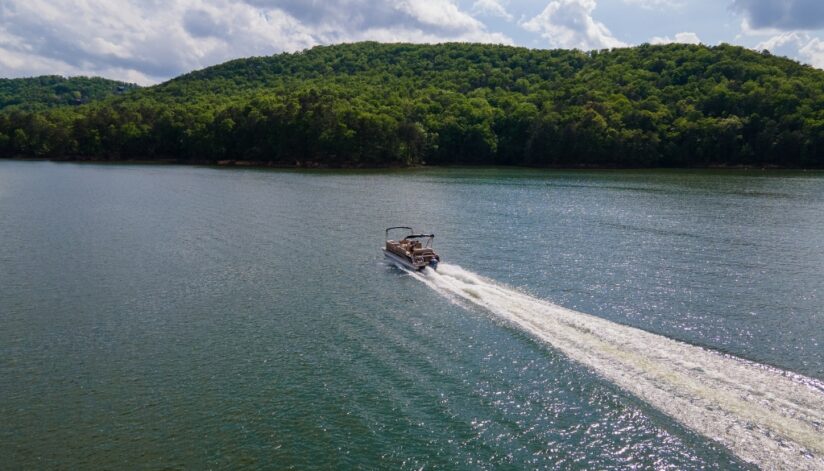Wisconsin Boating Laws: A Guide For Safe And Legal Water Activities
The Coulee Region and its plentiful lakes and rivers, offers abundant opportunities for boating enthusiasts. However, engaging in boating activities also comes with the responsibility to understand and adhere to Wisconsin boating laws. These regulations are designed to ensure everyone’s safety on the water and to protect the natural environment. At Bosshard Parke, we can help you enjoy your time on the water safely and legally.
Wisconsin Boating Laws
License And Education Requirements
Wisconsin law requires that all boaters born on or after January 1, 1989, complete a boater safety course to legally operate a motorboat or personal watercraft (PWC). This course can be taken online or in person, and upon completion, boaters will receive a Boating Safety Education Certificate that must be carried when boating.
Boat Registration
In Wisconsin, boats that are required to be registered are:
- All motorized vessels and boats used on waters of the state; including electric trolling motors.
- Sailboats greater than 12 feet in length used on waters of the state.
The registration process involves submitting an application to the Wisconsin Department of Natural Resources (DNR), either online, by mail, or in person at a DNR service center. Boat owners must provide proof of ownership, such as a bill of sale or manufacturer’s statement of origin, and pay a registration fee, which varies depending on the type and size of the boat.
Once registered, boats are issued a registration certificate and decals that must be displayed on the boat. The registration is typically valid for three years and must be renewed before expiration. This registration helps the state manage its aquatic resources, ensure safety on the water, and provide funding for marine law enforcement and infrastructure.
Operating Under The Influence (OUI)
Operating a boat under the influence of alcohol or drugs is illegal in Wisconsin, similar to driving a vehicle on the road. The legal blood alcohol content (BAC) limit for boaters is 0.08%. Penalties for boating under the influence can include fines, jail time, and suspension of boating privileges. To ensure everyone’s safety, it’s best to designate a sober skipper if alcohol will be consumed.
Age Restrictions For Boat Operation
Wisconsin has specific age-related restrictions for boat operation:
- No one under the age of 10 may operate a motorboat.
- Youth aged 10 and 11 may operate a motorboat only if accompanied by a parent or guardian or a person at least 18 years old designated by the parent or guardian.
- Those aged 12 to 15 may operate a motorboat alone only if they have completed the boating safety course; otherwise, they must be accompanied as stated above.
- Persons at least 16 years old who have completed a boating safety course can operate a motorboat without restrictions.
Personal Flotation Devices (PFDs)
Wisconsin law requires that all boats have a U.S. Coast Guard-approved life jacket for each person on board. Children under the age of 13 must wear life jackets at all times when on the open deck of a boat. In addition to this, it’s recommended that all boaters wear life jackets, regardless of their swimming ability, as accidents can occur unexpectedly.
Speed Limits And Operation Rules
Boaters must adhere to posted speed limits and no-wake zones. In unmarked areas, boaters should operate at a reasonable speed that will not endanger other persons or property. It’s also essential to follow right-of-way rules, which dictate that powerboats must give way to non-motorized crafts such as canoes and sailboats.
Environmental Regulations
To protect Wisconsin’s waterways, boaters must follow environmental laws concerning the transport of aquatic invasive species and pollution. It’s illegal to transport water or aquatic plants on boat trailers and equipment from one body of water to another without proper cleaning. Additionally, boaters should avoid spilling oil, fuel, and waste into the water.
Emergency Procedures
Boaters should be prepared for emergencies by having the necessary safety equipment, including fire extinguishers, visual distress signals, and sound-producing devices. Knowing how to use these tools in an emergency can be lifesaving.
Conclusion
Adhering to Wisconsin’s boating laws not only ensures compliance but significantly enhances safety for everyone on the water. Whether you’re a seasoned sailor or a weekend jet-skier, understanding and respecting these regulations is key to a safe and enjoyable boating experience.
Should you find yourself in need of legal assistance, whether for a boating violation or an accident, our experienced attorneys at Bosshard Parke are here to help you navigate the complexities of maritime law. Enjoy Wisconsin’s beautiful waterways with confidence by knowing your legal obligations and rights.
Disclaimer: This article is for informational purposes only and should not be considered legal advice. For specific guidance on boating laws and regulations in Wisconsin, please consult with a qualified attorney at Bosshard Parke.




